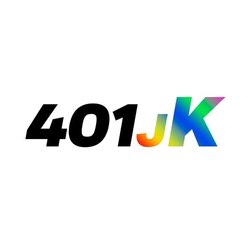Advertisement|Remove ads.
Wharton’s Jeremy Siegel Says AI Boom Is No Bubble: 'These Are Real Firms With Real Cash Flows'

- Siegel’s comments come at a time when Big Tech companies are ramping up their capex.
- OpenAI investor Microsoft reported that the company’s capex spends were driven by demand for its cloud and AI offerings.
- However, beyond the Big Tech stocks, Siegel said that valuations are “far from euphoric.”
Jeremy Siegel, professor emeritus of finance at the University of Pennsylvania’s Wharton School of Business, dismissed concerns of an AI bubble on Tuesday, amid growing concerns of froth in U.S. equities.
In his weekly commentary, Siegel stated that the current rally in U.S. equities is driven by strong earnings from big technology companies in the latest quarter. “Earnings remain the bright spot,” he said.
Why Is Current Boom Different?
Siegel added that Big Tech’s latest quarterly prints, and the capital expenditure plans in the artificial intelligence (AI) sector for 2025-26, demonstrate that the current boom in U.S. equities is different from the dot-com boom in 1999. “These are real firms with real cash flows, not concept stocks,” he said.
Siegel’s comments come at a time when Big Tech companies are ramping up their capex. Microsoft Corp. (MSFT) spent $34.9 billion in its fiscal first quarter (Q1), higher than the $30 billion that it had forecast. Microsoft CFO Amy Hood stated that the spending was driven by demand for the company's cloud and AI offerings.
Amazon.com Inc. (AMZN) reported $34.2 billion in capex in its fiscal third quarter (Q3), forecasting $125 billion in capex by the end of 2025, compared to $83 billion in 2024.
Meta Platforms Inc. (META) expects to spend up to $72 billion in capex in 2025, up from $39.2 billion it spent in 2024.
Looking Beyond Big Tech
Siegel underscored that beyond the Big Tech stocks, valuations are “far from euphoric.”
“By our calculations, the non-Mag7, non-Tech slice of the S&P 500 trades near a 19–20x market-cap-weighted P/E—reasonable with disinflation and positive growth. That’s fertile ground and supportive for further gains,” he added.
However, the exuberance in Big Tech stocks could result in a late-year chase by fund managers, according to Siegel.
Strong Economy
The economist also noted that the U.S. economy is “sturdier” than most expected at this point in the year. He stated that inflation in areas like housing rents is easing, while higher prices of goods are being distorted by President Donald Trump’s tariffs. “This is an economy where prices are edging lower for the right reasons and growth is still running above stall speed,” he added.
Meanwhile, U.S. equities were down in Tuesday’s pre-market trade. At the time of writing, the SPDR S&P 500 ETF (SPY), which tracks the S&P 500 index, was down 1.02%, the Invesco QQQ Trust ETF (QQQ) declined 1.34%, while the SPDR Dow Jones Industrial Average ETF Trust (DIA) rose 0.63%. Retail sentiment around the S&P 500 ETF on Stocktwits was in the ‘extremely bearish’ territory.
The iShares 7-10 Year Treasury Bond ETF (IEF) was up 0.08% at the time of writing.
Also See: Dow Futures Edge Lower On Pullback Fears: PLTR, SRPT, TSLA, AMD Among Stocks To Watch
For updates and corrections, email newsroom[at]stocktwits[dot]com.












/filters:format(webp)https://news.stocktwits-cdn.com/large_Patrick_Witt_d5f3eaa4da.webp)
/filters:format(webp)https://news.stocktwits-cdn.com/Anushka_Basu_make_me_smile_in_the_picture_b92832aa_af59_4141_aacc_4180d2241ba8_1_2_png_1086e0ed8c.webp)
/filters:format(webp)https://news.stocktwits-cdn.com/large_Brian_Armstrong_Coinbase_60d65adb96.webp)
/filters:format(webp)https://news.stocktwits-cdn.com/large_immunitybio_stock_jpg_9eab8bde17.webp)
/filters:format(webp)https://st-everywhere-cms-prod.s3.us-east-1.amazonaws.com/unnamed_jpg_9dff551b50.webp)
/filters:format(webp)https://news.stocktwits-cdn.com/large_lowe_logo_resized_jpg_b9cb8f6035.webp)
/filters:format(webp)https://news.stocktwits-cdn.com/Aashika_Suresh_Profile_Picture_jpg_2acd6f446c.webp)
/filters:format(webp)https://news.stocktwits-cdn.com/large_grocery_shopping_inflation_original_jpg_3bbd9af886.webp)
/filters:format(webp)https://news.stocktwits-cdn.com/jaiveer_jpg_280ad67f36.webp)
/filters:format(webp)https://news.stocktwits-cdn.com/large_Getty_Images_2247547661_jpg_4e03c3ca3f.webp)